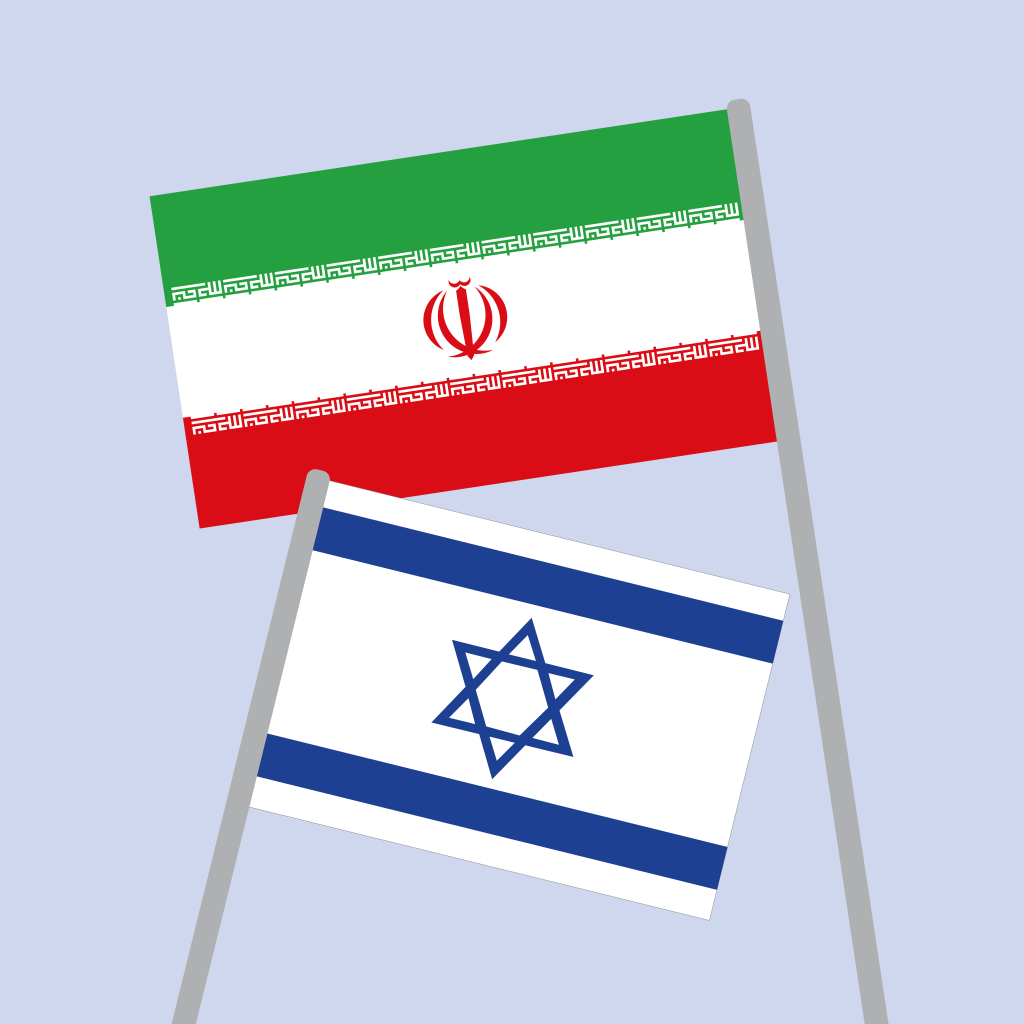[FR] Israel – Iran: halting the strategy of the worst

With the risk of escalation on everyone’s mind, it may be useful to recall a few fundamentals.
Historically, the rivalry between Israel and Iran is recent. For many decades, until 1979, the two countries were strategic allies in the region, each being a minority facing the dominant Arab majority. The Tel Aviv-Tehran axis even extended to Ankara, depending on the circumstances, with Washington’s blessing and support. During the Iran-Iraq war from 1970 to 1980, Israel even unofficially armed Iran so that both states, Iraq and Iran, would remain weakened by perpetual war.
Two events would change this situation: in Iran, the Islamic revolution of 1979; in the West, the American war against Iraq in 2003. Khomeini’s new Iran made Israel the ‘little Satan’ and assumed its goal of destroying the State of Israel. The war in Iraq knocked Iraq out and transformed Iran into a major regional power. Israel now found itself facing a triple threat – ideological, terrorist and strategic – with the mullahs’ regime making no secret of its efforts to proliferate nuclear weapons.
From then on, a kind of perpetual indirect war pitted the two countries against each other: a war ‘by proxy’, in other words, fought through allied forces. Iran has several proxies in the region: Hezbollah in southern Lebanon, Hamas in Palestine, Shiite militias in Iraq and, since the civil war in Yemen in 2014, the Shiite Houthis, who control a large part of the country.
From southern Lebanon, the Lebanese Hezbollah militia regularly attacks positions in the Golan Heights and on Israel’s northern border, which responds on Lebanese territory. Several wars followed, including Operation Grapes of Wrath in 1996 and the 30-day war in Lebanon in 2006. But a kind of tacit agreement seems to prevent escalation: neither Iran nor Israel are targeted at the heart of their territory.
It is this agreement that Israel seems to have broken on 1 April by striking the Iranian consulate in Damascus: if a consulate is part of a country’s territory, then it is Iran itself that has been struck. And it was to this attack that Iran responded on 14 April, launching a barrage of drones on Israeli territory, without causing any casualties, as most of the missiles were intercepted.
Logically, that should be the end of it. The international community is calling for restraint, and Iran itself is asking the West to ‘appreciate its restraint’ in its response to the Israeli attack. The Israelis are rallying the West around their right to self-defence, mobilising the G7 and the UN Security Council, and at the same time saying they are preparing a response. How can this spiral, which is as suicidal for both countries as it is deadly for thousands of individuals, be stopped?
Two questions immediately come to mind. Why did Israel take the initiative to attack an Iranian diplomatic target in Damascus? And who has an interest in military escalation? It seems clear that neither the US nor Iran wants escalation. Joe Biden was very clear in the aftermath of Iran’s retaliation: the United States wants ‘neither escalation nor a wider war’ with Iran. Already preoccupied with the war in Ukraine, the Democratic candidate cannot allow a new regional conflagration to break out, let alone be accused of major strategic impotence. As for Iran and its proxy Hezbollah, they have ‘blessed the hand’ of those who perpetrated the crimes of 7 October, but have so far avoided fuelling a conflagration in the region. The domestic situation in Iran is disastrous, the army is not as powerful as it would like to believe (its drone and missile attack on Israel was a complete failure), and Israel’s growing discredit due to its catastrophic strikes on Gaza may already be playing out as a political victory for Iran. On the Israeli side, things are less clear. Israel undoubtedly wanted to restore its military credibility after the failure of the Israeli services to prevent the attack on 7 October: a show of force and an illustration of the excellence of the IDF’s intelligence was needed. And this was achieved with the ultra-precise attack on the consulate in Damascus and the ultra-targeted elimination of senior Pasdaran officers. But we cannot rule out a personal calculation on the part of Netanyahu, whose military strategy is bogged down in Gaza, whose excesses and far-right allies are weakening the positive image of Israeli democracy, and whose future is undoubtedly in prison once the conflict is over.
A collective initiative is then required. In the aftermath of Iran’s retaliation, Israeli society is united once again against Iran and against any aggressor. The West is also united in the legitimate defence of Israel. Each side is preparing for the worst. But if each side retaliates against the other’s retaliation, the escalation will quickly become uncontrollable. Old ideas sometimes offer new ways out of crises: an international conference on the region? Direct security guarantees for Israel? A new round of negotiations on the two-state solution between Israel and Palestine? Nothing needs to be invented, everything needs to be dared. If Washington has any influence over its allies, if America serves any good purpose in the world – the famous ‘indispensable power’ – now is the time to prove it.




